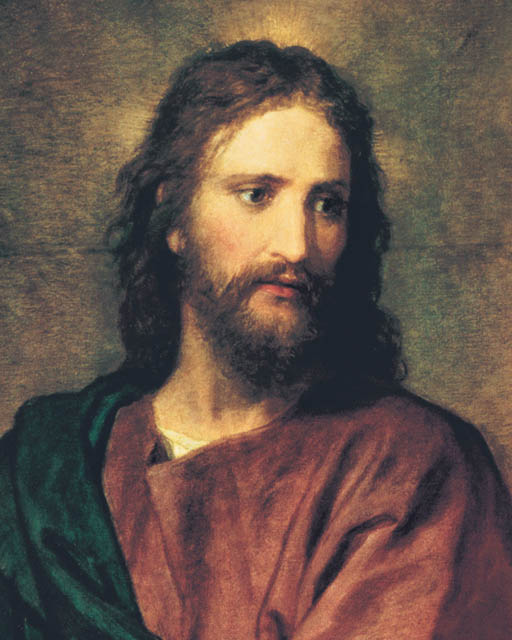A movie billed as a children’s fantasy currently has a lot of controversy surrounding its alarming premise.
The Golden Compass, based on the first , it appears to be another fantasy tale — albeit a rather dark one– of kids saving the world against evil.
 But as those who have read the books can tell you, the story carries an anti-religious agenda. According to one reader, the series revolves around “a battle for control of heaven waged by humans against certain angels.” According to another, the series operates under the premise that God (or rather, the “God” of the world in the books) should have lost the war in heaven.
But as those who have read the books can tell you, the story carries an anti-religious agenda. According to one reader, the series revolves around “a battle for control of heaven waged by humans against certain angels.” According to another, the series operates under the premise that God (or rather, the “God” of the world in the books) should have lost the war in heaven.
Fox News reports: “The anti-religious themes get progressively stronger with each book in the trilogy; in the final installment, the characters succeed in killing a character called God – who turns out to be a phony, and not God after all.”
The movie, however, is expected not to be as anti-religious as the books. References to Catholicism are absent from the movie; instead, the evil religious establishment is known as “the Magisterium.”
We know the whole thing is fiction. And for some folks, this is enough. After all, we watch movies about Harry Potter performing magic and Jedi knights using the Force, and we know that’s not real. But it makes a good story. And since this particular series of books has sold over 15 million copies, mostly in the United Kingdom, a lot of people think this is a good story also.
But I’m still also very concerned about how anti-Christian the attitudes portrayed in this series really are. Throughout my research on this particular book and series, I’ve seen many indications of characters and actions that speak against the church — not evil forces, but the church. For example, one character says, “Every church is the same: control, destroy, obliterate every good feeling.” Here, the church is the source of the evil forces.
Some minds might find this an interesting idea to play with. But the minds of young impressionable children are something different. They’re pure, they’re innocent, and they absorb much of what they hear — especially those things that their parents bring to them. Despite the young characters, this is not a movie for kids.
The Catholic League called for a boycott of The Golden Compass in October. Although the producers of the movie version claim that they have removed many of the anti-religious and anti-Catholic elements of the film, they believe that the movie will still encourage children to read the books, where the anti-religious elements are stronger.
Bill Donohoe, president of The Catholic League, told interviewer John Gibson on 9 October 2007 why he believes Christians should stay away from the film:
Look, the movie is based on the least offensive of the three books. And they have dumbed down the worst elements in the movie because they don’t want to make Christians angry and they want to make money. Our concern is this, unsuspecting Christian parents may want to take their kid to the movie, it opens up December 7th and say, this wasn’t troubling, then we’ll buy the books. So the movie is the bait for the books which are profoundly anti-Catholic and at the same time selling atheism.
In the interest of objectivity, there are other ways to interpret the film besides as anti-religious. Director Chris Weitz shared Pullman’s own ideas in an interview in 2004 for Bridge to the Stars. “(Pullman’s) feeling, and I say this with absolute certainty that I am not unfairly paraphrasing him, is that the ‘Authority’ in question could represent any arbitrary establishment that curtails the freedom of the individual, whether it be religious, political, totalitarian, fundamentalist, communist, what have you.”
The commentary at snopes.com suggests that “Pullman’s criticisms of organized religion come across as anti-authoritarian and anti-ascetic rather than anti-doctrinal,” although this may change with an upcoming sequel.
Here’s another possible way to view the movie: “It undoubtedly makes people question, but inspires them to look harder for more authentic religion,” Craig Detweiler suggested to Fox News. “Pullman takes license in pointing out the scary, false gods and destructive idols we’ve created. In that sense, I think he’s doing a great service.”
For all of these examples intended in part to prevent the alienation of Christian moviegoers, there are plenty of anti-religious quotes already on the record as well. For example, many atheists are thrilled for a series of books and a movie to address their belief system, rather than a religious one. And they feel their kids will be able to relate to them as well. While I can sympathize with wanting to teach one’s values to one’s children and provide them with entertainment they can relate to, this concerns me. If atheists are so excited about their children seeing this because it reflects their values, should I be excited about my Christian children seeing it?
Pullman himself has had some rather scathing quotations attributed to him in the past. He himself is an avowed atheist who said in a 2003 interview with The Sydney Morning Herald that “My books are about killing God.”
For people who’d just like to take their kids to see a movie about good triumphing over evil, it all makes the decision pretty confusing. As always, the choice is up to the individual. But I’d like to bring up a few words of caution to all readers and moviegoers. While some of our Church leaders have counseled us not to view R-rated movies, this is not the only defining factor for inappropriate entertainment. The current edition of For the Strength of Youth tells us:
Whatever you read, listen to, or look at has an effect on you. Therefore, choose only entertainment and media that uplift you. Good entertainment will help you to have good thoughts and make righteous choices. It will allow you to enjoy yourself without losing the Spirit of the Lord … Do not attend, view, or participate in entertainment that is vulgar, immoral, violent, or pornographic in any way. Do not participate in entertainment that in any way presents immorality or violent behavior as acceptable. (17)
So we teach our children to stay away from movies that portray graphic sex or violence. But what about other forms of immorality? Might films with “dark” attitudes, or those that fight against God or His institutions, be at least as destructive to our minds and spirits as those that glorify unchastity or violence?
This is something that all will have to choose for themselves. But please, parents, be aware of what your children are reading and watching. Don’t just familiarize yourself with the plot, or even just the violence level or language used. Try to understand the agendas and attitudes that children are taking into their minds. As we can see here, not all children’s novels are morally uplifting reading.
Here I’ve tried to present thoughts from both sides to help readers make an informed choice. Personally, I am wary of information blindly passed along by people who haven’t researched the topic themselves. I’m also concerned about quotations from Pullman himself being taken out of context and making the attitudes behind the books and the film sound more vicious than they actually are. Yet another concern I have over the boycott is that it has brought a great deal of publicity to this movie, and I’m sure it’s made a lot of people curious about it who might not have cared otherwise.
But the fact remains that people need to be informed about those things they are considering reading or watching, and especially that which they plan to expose their children to. So both now and in the future, it’s important to remain watchful of these things. Don’t assume that the absence of an R-rating means that a movie will contain attitudes you want your children to absorb. Don’t assume that such a movie won’t offend the Spirit just because it didn’t get an R-rating.


